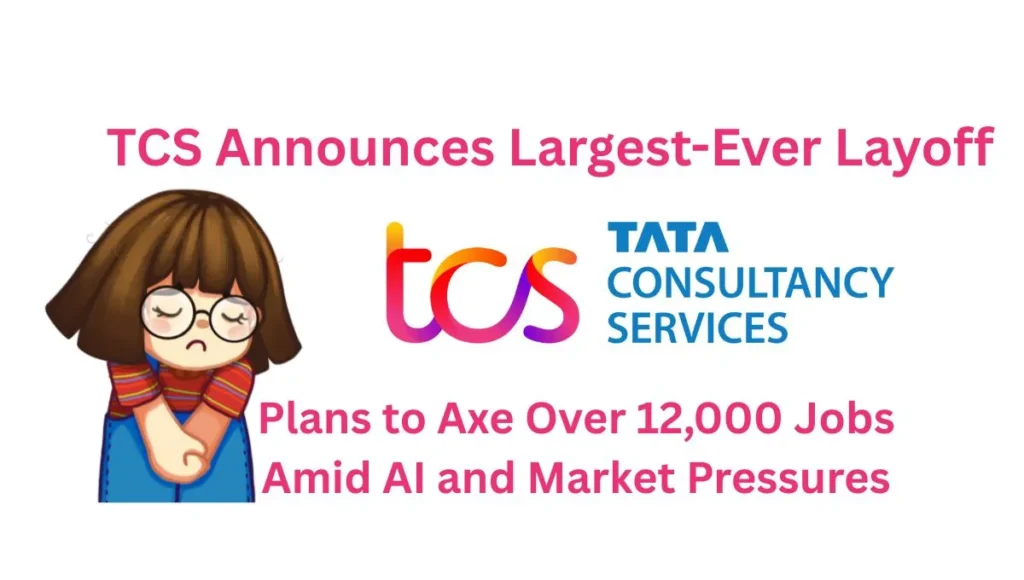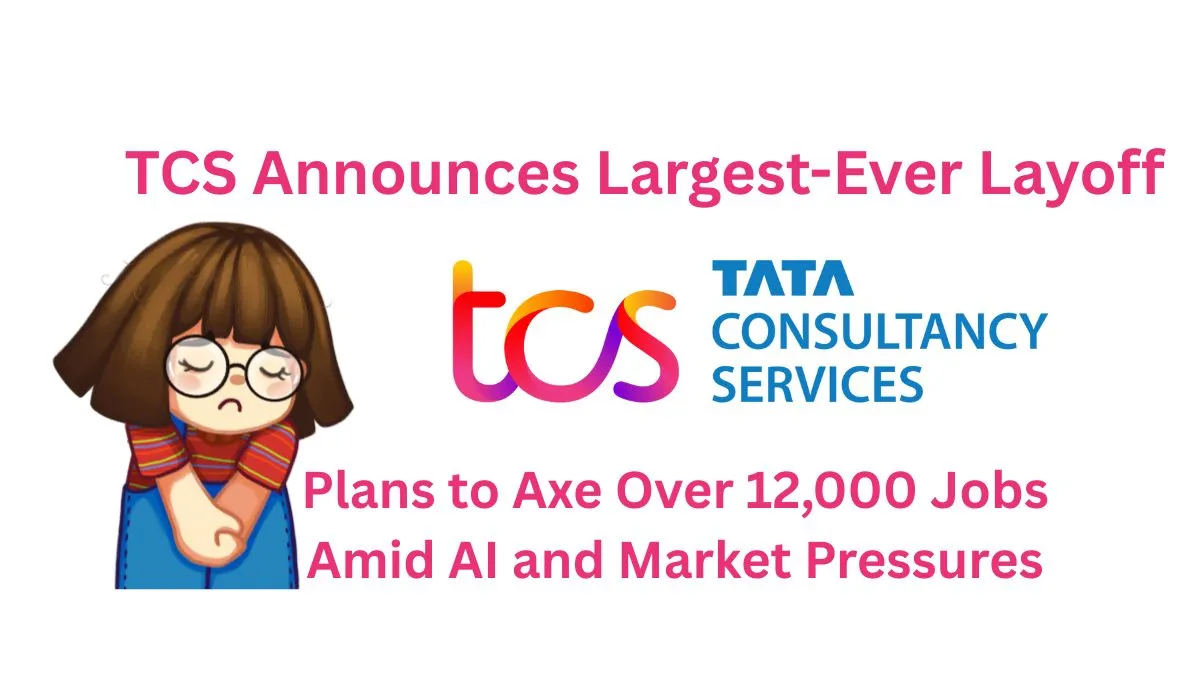Tata Consultancy Services (TCS), India’s flagship IT services firm and the Tata Group’s most profitable arm, has announced a major workforce reduction, marking the largest layoff in its 50-year history. The company will let go approximately 12,000 to 12,261 employees, representing around 2% of its global workforce of over 600,000 staff, over the course of the financial year 2026
Why Is TCS Laying Off 12,000 Employees?
TCS attributes the decision to several long-term trends reshaping the industry:
- AI-Driven Disruption and Automation: Rapid adoption of artificial intelligence and automation tools is significantly reducing reliance on labor-intensive delivery models. TCS acknowledges that many roles have become redundant or mismatched with current client demands
Macroeconomic Stress: Global economic headwinds, including inflation, weak discretionary IT spending, and geopolitical uncertainties, have delayed project starts and tightened client budgets, pressuring profit margins across the sector
Strategic Realignment: TCS aims to become a “future‑ready” company by entering high-growth segments, investing in newer markets, and reskilling staff to work with cloud, data, AI, and next-gen delivery frameworks

Who Is Most Affected?
Although TCS has not released role-by-role details, a consensus has emerged that the job cuts will primarily impact middle and senior-level employees, especially those with tenure over a decade. Roles most vulnerable include non-client-facing managers, project leads, and specialists in legacy technologies whose skills have not kept pace with evolving requirements
TCS’s Take on AI and Skill Mismatch
TCS CEO K. Krithivasan has clarified that the layoffs are not primarily due to AI-related productivity gains. Instead, they stem from skill mismatches—cases where trained employees cannot be deployed in new technology areas. The company admitted that while it trained hundreds of thousands of employees in new skills, not all were deployable beyond entry or mid-level tasks
Support for Affected Employees
TCS has pledged support for those impacted, including:
- Payment of full notice-period salaries and a severance package.
- Continuation of insurance benefits, often extended for up to a year.
- Outplacement assistance, counselling, and career transition guidance
Unions and employee associations, however, have criticized the layoffs as unfair and possibly illegal. They have urged affected staff not to resign voluntarily and have demanded reinstatement or compensation in line with labor regulations
Industry-Wide Fallout and Market Response
TCS’s move echoes broader trends in the IT services sector:
- Sectoral Mood Downturn: Major companies like Infosys and Wipro saw share prices fall up to 3%, dragging the Nifty IT index down by 1.6% after the announcement
Tougher Bench Policies: TCS implemented a strict 225‑day minimum billability requirement, with no more than 35 days allowed on the bench; failure to comply now risks termination even for seasoned personnel
Cascading Effect Expected: Industry experts warn other major Indian firms may follow suit as clients demand 20–30% price cuts and shift to automation-first delivery models
Impact on Employees and Career Planning
While just 2% of the total workforce, this layoff triggers broader ripple effects:
- Mid‑career professionals should reassess skills, especially in AI, cloud, DevOps, and automation.
- Reskilling and certification in high-demand technologies are now critical.
- Networking and exploring opportunities beyond traditional IT services—startups, analytics, product firms—are advised.
- Many may shift to consulting, freelance, or gig roles, or consider industries beyond IT.
Expert Perspectives
Phil Fersht, CEO of HFS Research, highlighted that AI is eroding the traditional “people-heavy services model” and forcing companies like TCS to reorganize to preserve margins and remain price-competitive. He added the trend will likely continue for at least a year until employers train junior talent to work alongside AI systems, replacing roles that cannot adapt
